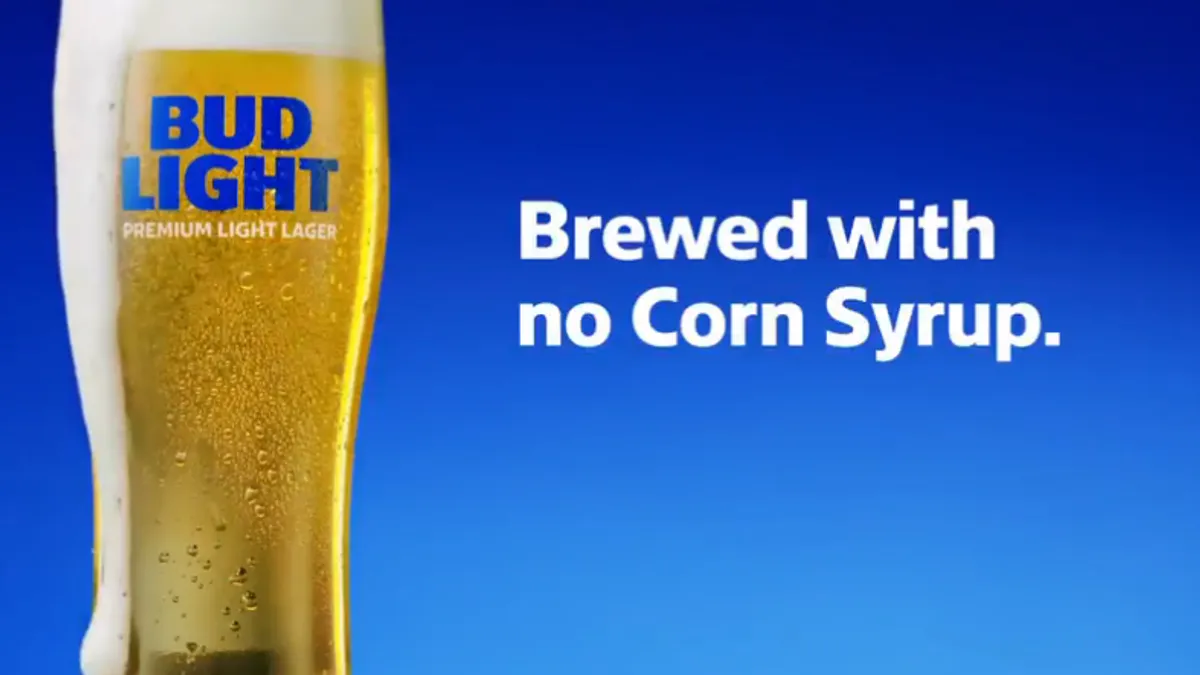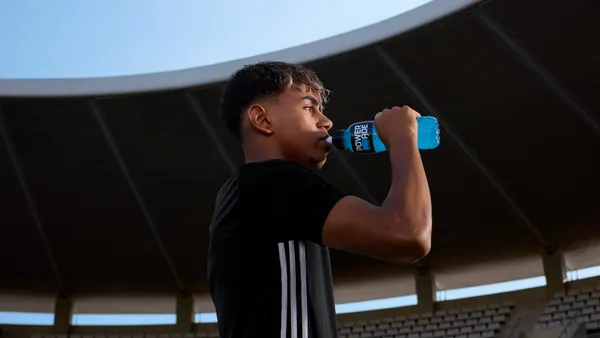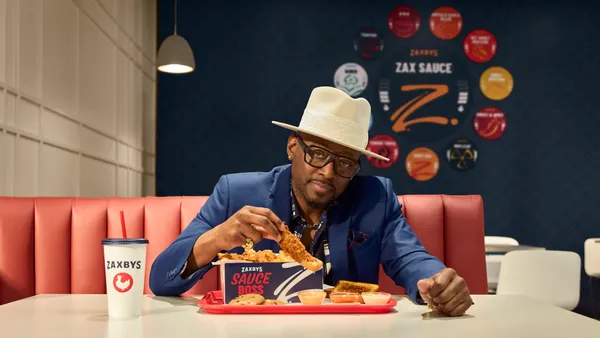Dive Brief:
- AB InBev is accusing Molson Coors Brewing Co.'s U.S. business unit of stealing its secret beer recipes in an 84-page heavily redacted counterclaim the brewing giant filed Oct. 17 against MillerCoors in a Wisconsin federal court. It's the latest wrinkle in a legal dispute that started with a contentious Bud Light Super Bowl ad.
- AB InBev claims a MillerCoors employee got the recipes for Bud Light and Michelob Ultra from an Anheuser-Busch worker, the claim states. The MillerCoors employee — who had previously been an AB InBev brewer — wrote several text messages asking about ingredients — specifically corn syrup and enzymes — used in the company's beer. The text messages indicate higher ups at MillerCoors — including the CEO — had been asking about it.
- AB InBev is asking the court to stop MillerCoors from accessing, using or disclosing any confidential company recipes or other materials; keep it from communicating with current or former AB InBev employees about this information while the case proceeds; and order MillerCoors to return any confidential or trade secret information it has regarding AB InBev.
Dive Insight:
Although legal wrangling between the two beer rivals has been ongoing since March, the allegations about stolen recipes emerged late last week. AB InBev stated in the counterclaim it recently became aware through document production in the initial case that MillerCoors had photographs of the recipes that describe how recent batches were brewed, barley and hop blends and volumes, and relative weight of ingredients.
AB InBev further claimed the photographs were dated one day before the Super Bowl ad aired and were transmitted on a Saturday. The photographs and text messages are blacked out in the counterclaim.
MillerCoors spokesman Adam Collins told CNBC in a statement the company respects confidential information and takes this case seriously. But he added, "[I]f the ingredients are a secret, why did [AB InBev] spend tens of millions of dollars telling the entire world what’s in Bud Light? Anheuser Busch has lost three major federal rulings in this case and now they are simply trying to distract from the basic fact that they intentionally misled American consumers."
This is the latest twist in a tangled legal saga. In February, AB InBev ran a one-minute Super Bowl ad calling attention to MillerCoors' use of corn syrup in its beer brewing process. In March, the U.S. arm of Molson Coors sued AB InBev in Wisconsin federal court and accused its rival of launching a "false and misleading advertising campaign targeting Miller Lite and Coors Light in order to deceive beer consumers."
In May, MillerCoors won a partial court victory preventing AB InBev from using some language in the ad in future commercials, print advertising or social media outlets. Federal judge William Conley said AB InBev was trying to exploit consumer confusion about corn syrup being used in beer brewing as meaning the ingredient is actually in the final products. The judge followed up in September with an injunction preventing AB InBev from labeling Bud Light as containing no corn syrup because such a claim could lead consumers to infer other beers contain the ingredient.
The legal dust-up over the Super Bowl ad may have contributed to a reported 9.2% drop in year-over-year Bud Light sales four weeks after the ad aired — data MillerCoors publicized in a blog post. The labeling prohibition may also have harmed AB InBev in the consumer transparency and clean-label department, which was probably the opposite of its goal.
It's hard to tell how the AB InBev counterclaim will play out and whether MillerCoors actually acquired Bud Light and Michelob Ultra recipes — two of the relatively strong performers in AB InBev's portfolio. Michelob Ultra has been the fastest-growing beer in the U.S. for the past few years, while Bud Light has recently seen sales slide, according to IRI figures reported by Brewbound.
Trade secrets are closely guarded assets for any company, and legal damages for taking and misusing them can be costly. In 2017, a Utah federal court awarded Bimbo Bakeries USA $2.1 million in its trade secrets and false advertising lawsuit against US Bakery. A jury found the trade secret of Bimbo's Grandma Sycamore's brand bread had been revealed to a competitor by the businessman who'd invented the recipe and sold the brand years before.
Manufacturers typically use heightened security systems to protect their trade secrets. Coca-Cola and KFC both keep their trade secrets in vaults that are only accessible by a couple of senior employees. In the case of KFC, two separate suppliers make the seasoning, and each only blends half of the ingredients. And companies also protect their trade secrets with non-disclosure agreements for anyone who has access to them.
In the counterclaim, AB InBev described its process of requiring confidentiality agreements, user IDs, electronic monitoring and other techniques to make sure recipes and technical manuals are only accessed on a need-to-know basis.
Because of the highly competitive situation between this company and MillerCoors, security is likely to be further enhanced as the legal challenges play out. If the text messages in this claim are an indicator of how high up this dispute has gone, the next move in this war about ingredients is bound to be interesting.














